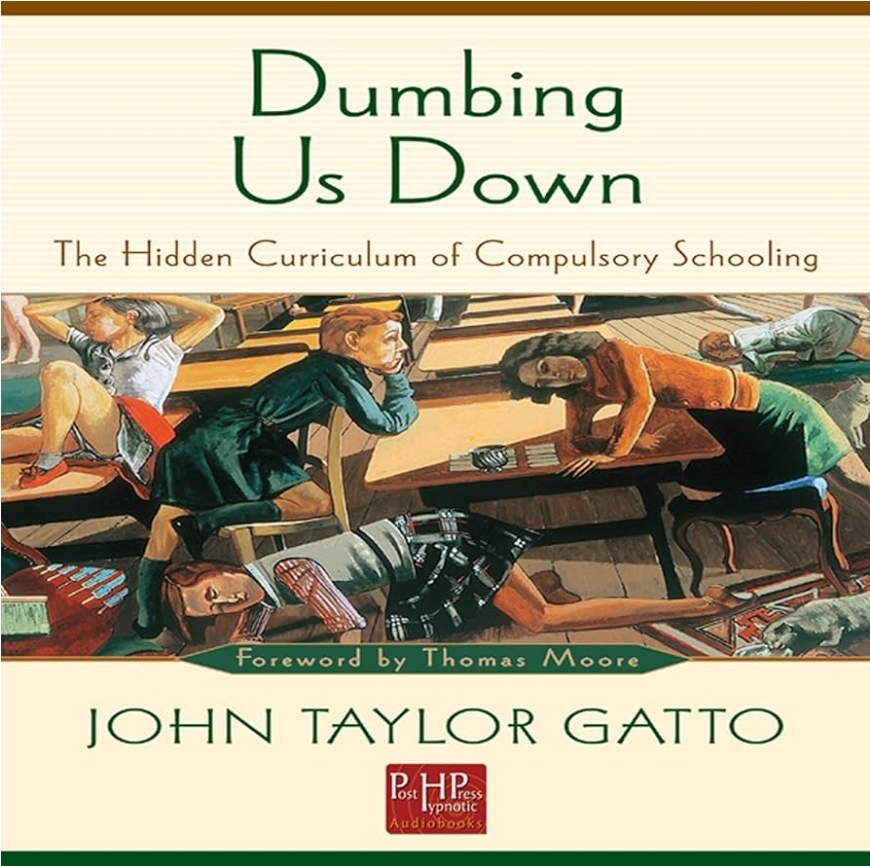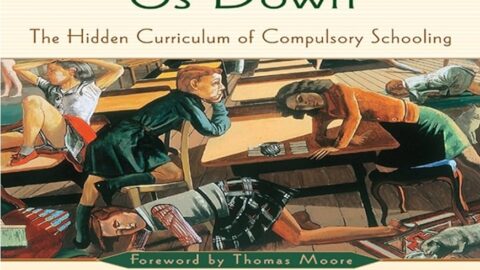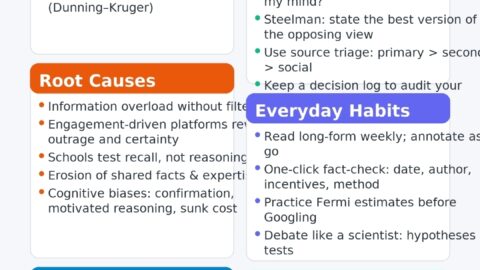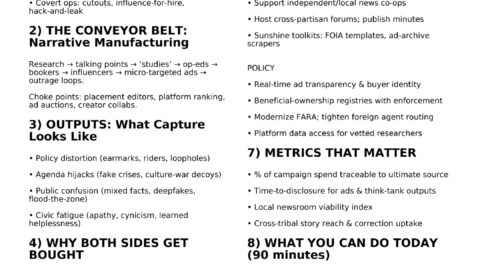Who Gatto Is (and why it matters)
Gatto was a celebrated New York City public-school teacher (multiple “Teacher of the Year” awards) who publicly resigned in the Wall Street Journal with the line “I Quit, I Think,” arguing that the system—not teachers—was damaging children. This book collects several of his most influential talks/essays (e.g., “The Seven-Lesson Schoolteacher,” “The Psychopathic School,” “We Need Less School, Not More”).
The “Hidden Curriculum”: Seven Lessons Schools Really Teach
In Gatto’s view, mass compulsory schooling transmits seven unspoken lessons that shape compliant citizens and consumers rather than educated, free people:
- Confusion
Subjects are chopped into disconnected pieces, delivered on a bell schedule. Kids learn that knowledge is fragmented and meaningless outside of tests. - Class Position
Students are sorted constantly (tracks, grades, stigmas), training them to “know their place” and accept outside labels as fate. - Indifference
Bells interrupt everything. The meta-lesson: attention is shallow, and nothing is worth deep immersion. Caring is punished by the schedule. - Emotional Dependency
Approval and permission come from authorities (passes, grades, hall monitors). Students learn to crave external validation and fear autonomy. - Intellectual Dependency
Experts decide what’s worth knowing and when you’re “ready.” Kids internalize that ideas originate elsewhere and that thinking is for credentialed people. - Provisional Self-Esteem
Self-worth rises or falls with scores, stickers, and honor rolls. Identity becomes contingent—constantly up for external review. - Constant Surveillance
Attendance, behavior charts, report cards: the message is that privacy is suspect and you behave because you’re watched.
Gatto’s claim: these lessons aren’t accidents; they’re structural outcomes of a system designed to produce obedient workers and predictable consumers.
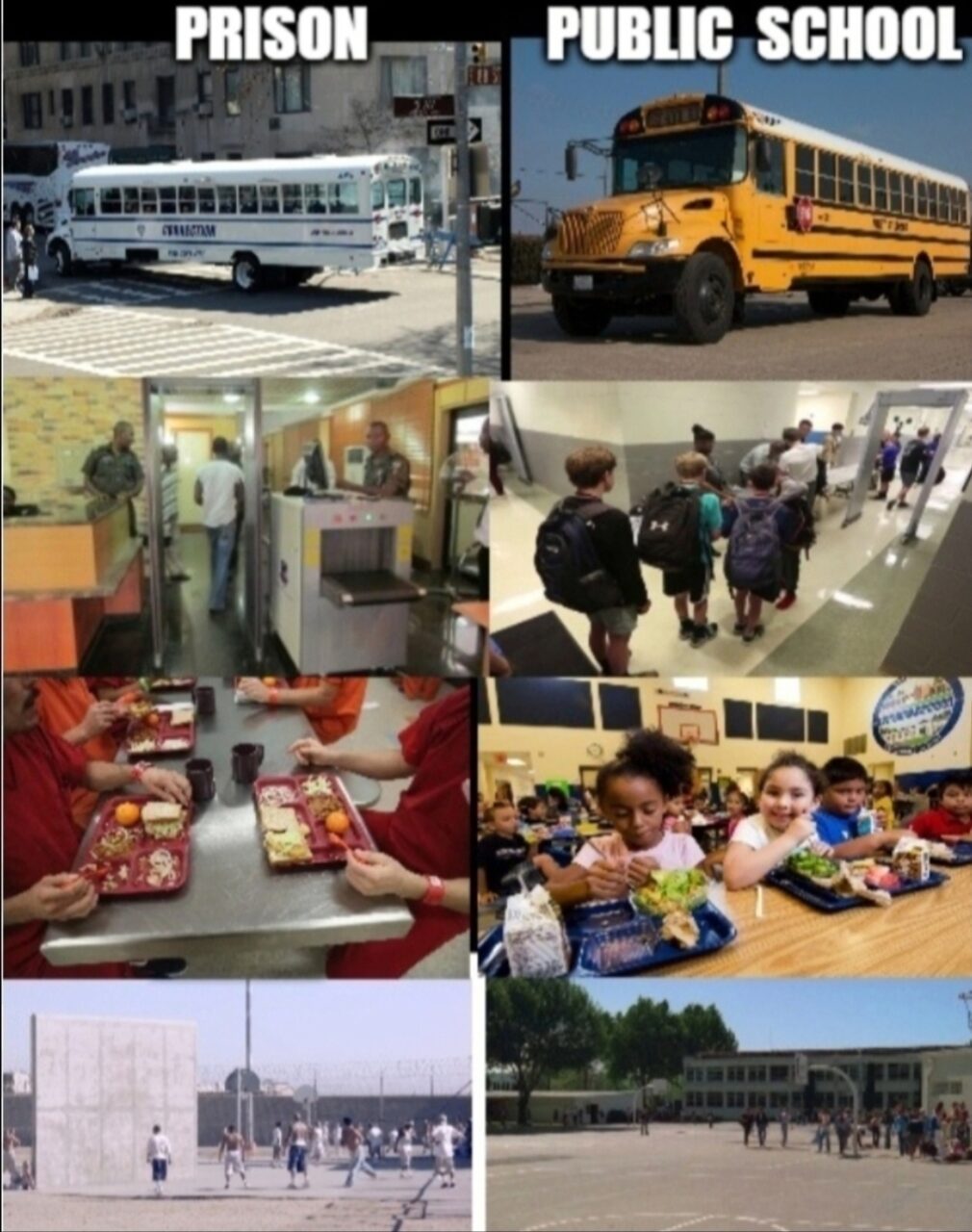
What He Says Schooling Was Built To Do
- Prussian model origins: Age-segregated, centrally planned, test-driven mass schooling was imported to create uniformity and civic docility, not genius and independence.
- Social management, not education: The apparatus sorts and pacifies far more than it cultivates character, curiosity, or craftsmanship.
- Family and community displacement: By monopolizing children’s time, school weakens family culture, neighborhood mentorship, and intergenerational learning.
His Warnings to Americans
- More school is not the answer. Extending seat time (longer days/years, universal pre-K, more homework) deepens dependence and boredom. Gatto argues we need less school and more life.
- Testing/standards are social control. High-stakes testing narrows the mind to what’s tested, entrenches ranking, and crowds out meaning, craftsmanship, and citizenship.
- Credential inflation traps kids. Schooling conflates diplomas with education, pushing a race for paper that doesn’t guarantee competence or character.
- Erosion of liberty through habits. After 12+ years of bells, passes, permission slips, and surveillance, people accept the same in adult life—from HR checklists to bureaucratic dictates.
- Cultural amnesia. Real history, local know-how, and family stories atrophy when childhood is institutionalized. People become easier to market to—and to govern.
What He Proposes Instead (inside or outside the system)
- We need less school, not more. Constrain formal seat-time and expand self-directed projects, apprenticeships, and real work.
- Re-center the true curriculum:
- Family (traditions, responsibilities, shared work)
- Community (service, local institutions, civic practice)
- Autodidactic habits (reading widely, managing time, writing daily, solitude)
- Adventure & creation (build, fix, perform, make things people value)
- Mentorship over management. Replace age segregation with mixed-age learning, role models, and apprenticeships.
- Assessment by portfolio and performance. Judge real products and contributions, not bubble sheets.
- Parent sovereignty. Parents reclaim time (reduce overschooling/homework), curate mentors, protect unstructured play, and, where needed, homeschool/unschool or join micro-schools and co-ops.
Why He Thinks This Matters Now
Gatto’s core fear is loss of human agency. A people trained to wait for instructions, seek permission, and accept sorting can be steered—by corporations, bureaucracies, or algorithms. His antidote is to rebuild competence, confidence, and local bonds so young people become free adults capable of self-direction.
If You’re a Parent/Teacher/Student—What You Can Do Tomorrow
- Protect long blocks of uninterrupted time for reading, making, and real projects.
- Find or form a mentorship/apprenticeship (local trades, nonprofits, labs, farms, studios).
- Swap some worksheets for portfolios—publish, perform, ship.
- Cross ages on purpose: siblings and neighbors learning together.
- Unplug a little: fewer bells (alarms), more deep work; fewer grades, more feedback.
- Read together: biographies of builders, classic literature, primary sources in history.
Bottom line: Gatto isn’t merely railing at “bad schools.” He’s warning that a compulsory, centralized, test-driven system grows habits of dependency that threaten a free society. His prescription is to re-humanize learning—less institution, more life; less conformity, more mastery; fewer credentials, more character.

